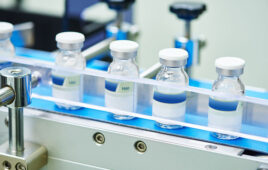CHICAGO (AP) — Most medical devices recalled in recent years
because of deaths or life-threatening problems were cleared for approval under
less stringent regulations that don’t require human testing, an analysis found.
The report comes as the Food and Drug Administration is
reviewing sweeping proposals to revise the medical device approval process. The
studied devices fell under rules for products similar to ones on the market,
not regulations for brand new ones, which call for more extensive testing.
Thousands of deaths or serious medical problems occurred in
patients with the recalled devices, which included external heart defibrillators,
brain shunts and implanted pumps that deliver cancer drugs, the researchers
said.
Device makers say the new data are flawed and conflict with
previous reports.
For their analysis, the researchers looked at the FDA’s list
of high-risk devices that were recalled from 2005 through 2009.
Of the 113 highest-risk recalled devices, 71 percent, or 80
devices, had been approved through the less stringent regulation. Only 19
percent, or 21 devices, were approved under a stricter process for brand new
products that involves inspections and human testing. Eight were registered
with the FDA but exempt from regulation.
“Because so many medical devices are not being held to
a higher safety standard, people are dying who wouldn’t otherwise die and who
don’t have to die, and people are being harmed who don’t have to be
harmed,” said study co-author Diana Zuckerman, president of the National
Research Center for Women & Families, a Washington-based health advocacy
group.
FDA spokeswoman Karen Riley said the study’s findings aren’t
new and noted that the recalls it highlighted represent a small portion of the
more than 19,000 devices cleared through the less strict standard during those
years.
The report appears in Monday’s Archives of Internal
Medicine. An editorial says the analysis shows that “millions of Americans
may be at risk for device-related injuries and recalls from high-risk devices
that were cleared by FDA without any supporting clinical trial data.”
“The public deserves better protection,” the
editorial said.
The researchers didn’t include a tally of all deaths and
injuries linked with the recalled devices. They noted that in 2006 alone, the
FDA received reports of 2,830 potential device-related deaths and more than
100,000 injuries. More than half of the deaths were linked with devices
approved under the less rigid process.
AdvaMed, a medical device makers trade group, said the
analysis conflicts with other reports — including one with industry ties — showing
devices cleared through that process have a good safety record.
Under the FDA’s 510(k) process, new devices can be approved
without human testing if they are similar to devices already on the market. A
stricter category, the pre-market approval process, requires scientific
evidence, typically extensive testing that is similar to what is required of
new medicines.
The 510(k) process is “a short-cut backdoor
approach” stemming from a 1976 law, when there weren’t many implanted
devices meant to sustain life, said study co-author Dr. Steven Nissen, chairman
of cardiovascular medicine at the Cleveland Clinic.
He and Zuckerman are among FDA critics who’ve urged the
agency to subject such devices to more rigorous testing, which device makers
oppose.
The FDA has said it is awaiting input from the Institute of Medicine, an independent government
advisory group, before making a final decision on revisions to the device
approval process.




